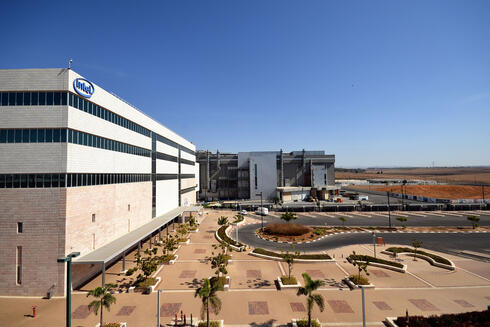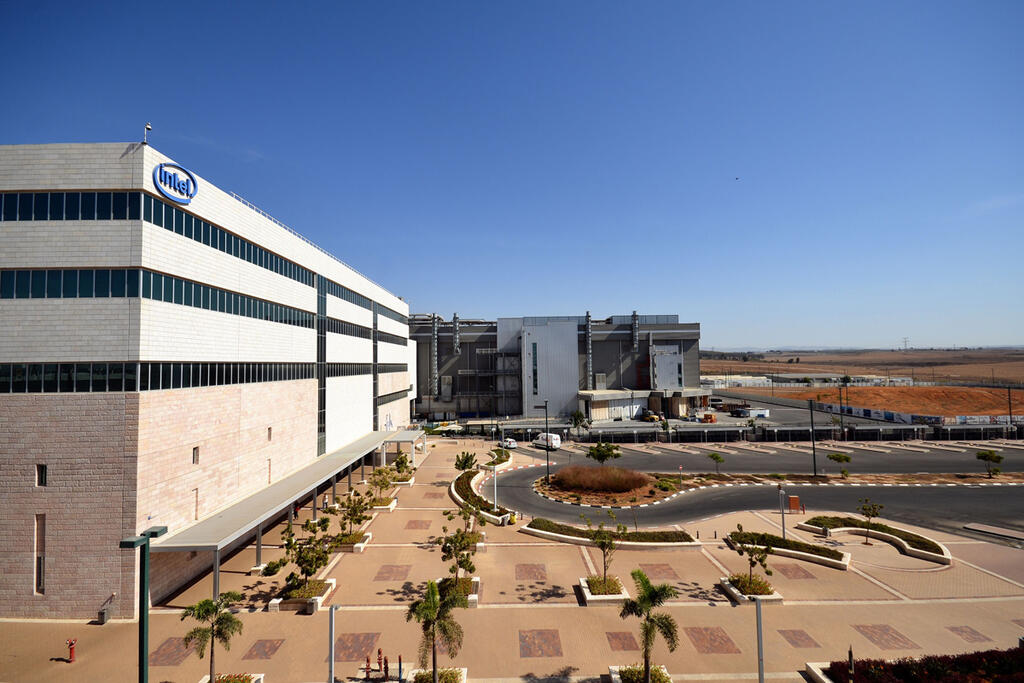
Intel to cut jobs at Kiryat Gat fab, says it must “position our business for the future”
The cost-cutting campaign expands beyond R&D as the plant loses long-standing protection.
Intel Israel has experienced a series of shocks in recent years amid the company’s global crisis, including hundreds of layoffs and the closure of various operations. Until now, the Kiryat Gat plant had remained largely untouched. But Calcalist has learned that in the latest round of cuts, even this facility will no longer be immune. According to estimates, Intel plans to lay off employees at the site as well, primarily from middle management.
The company said in response: "As we announced earlier this year, we are taking steps to become a leaner, faster and more efficient company. Removing organizational complexity and empowering our engineers will enable us to better serve the needs of our customers and strengthen our execution. We are making these decisions based on careful consideration of what’s needed to position our business for the future, and we will treat people with care and respect as we complete this important work."
The significance of this move lies not only in another wave of layoffs but also in what it signals: a shift in management’s perception of its manufacturing facilities. No longer are they considered untouchable. New CEO Lip-Bu Tan, who took over earlier this year, has publicly emphasized the strategic importance of Intel’s manufacturing capabilities, as well as the company’s ambition to offer foundry services to other firms. But he’s also been clear about the need for innovation and restructuring.
Until now, most of Intel Israel’s layoffs have been concentrated in the R&D divisions in Petah Tikva and Haifa, including the shutdown of initiatives such as Intel Ignite and Granulate, which it had acquired. The decision to include Kiryat Gat suggests that the company is trying to avoid further damage to its already strained development efforts.
Tan has stressed that Intel will not divest from chip manufacturing. Rather, he is determined to make Intel a leading foundry, producing chips for both itself and third parties.
The departure of former CEO Pat Gelsinger, who was reportedly pushed out, came after his failure to deliver on a highly ambitious five-year plan, amid disappointing financial results and Intel’s inability to capture meaningful market share in AI. The company had to watch Nvidia soar past it, despite investing heavily in AI through acquisitions, such as Israel’s Habana Labs, and R&D. Gelsinger also promoted Intel’s foundry strategy and invested in advanced processes like Intel 18A, but these efforts reportedly faced technical setbacks and low production yields. As a result, major customers like Apple and Qualcomm stayed away.
In the past two years, Intel has undergone two major rounds of layoffs. The first, at the end of 2024, saw about 1,000 employees cut in Israel. The second, which began in April 2025, is expected to claim hundreds more. It is still unclear whether the new cuts at Kiryat Gat are part of that round or mark the beginning of a third.
Intel Israel currently employs around 9,300 people, with roughly 4,000 at the Kiryat Gat manufacturing facilities. Historically, the plant had been spared from downsizing, partly due to the large government grants Intel received. For instance, in 2023, the Israeli government approved a $3.2 billion grant as part of Intel’s planned $15 billion investment in a new plant. This followed earlier grants of $185 million in 2018 and $300 million in 2014.
The Kiryat Gat fabs - Fab28 and Fab28A - currently produce chips using 7nm and 10nm technologies, now considered outdated compared to the global cutting-edge standards of 3nm and 5nm. Intel has not yet clarified the future of Fab38, a new facility under construction next to the older plants.
Despite the deep cuts, Tan has signaled his intent to right-size Intel’s bloated workforce, which he believes has outgrown its operational efficiency. “I’ve been surprised to learn that, in recent years, the most important KPI for many managers at Intel has been the size of their teams. Going forward, this will not be the case. I’m a big believer in the philosophy that the best leaders get the most done with the fewest people,” Tan wrote in a letter to employees in April.
Since 2022, Intel has laid off more than 20,000 employees globally, and according to Tan’s plans, a similar number may be cut in the coming year.














